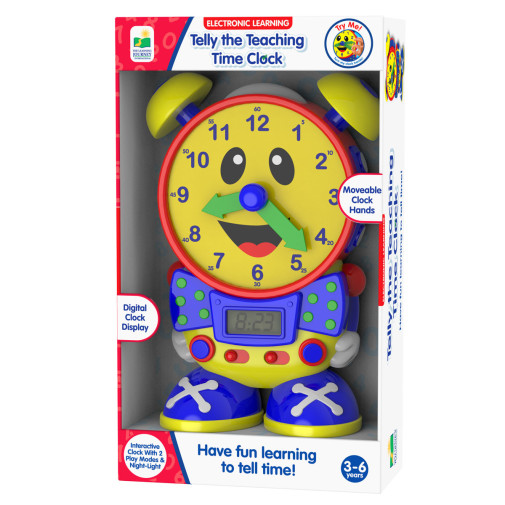We use cookies to make your experience better. To comply with the new e-Privacy directive, we need to ask for your consent to set the cookies. Learn more.
Telly the Teaching Time Clock
Bright colors and a cheerful smile make learning fun! Teaching both analog and digital time using two quiz modes, children begin with a learning mode to move the hands and update the LCD screen, then move into quiz mode and move the hands on the face to match the displayed digital time. Teaching time in five-minute increments, Telly provides a fun alternative to a workbook or basic clock face. He also features a real working clock and night light. Learning to tell time has never been so much fun! Includes 3 AA batteries.
This Classic version of Telly the Teaching Time Clock has been teaching kids to tell both analog and digital time using two quiz modes for a long time. In the learning mode, Telly teaches time in five minute increments by moving the hands and updating the LCD screen. In the quiz mode, Telly asks your child to move the hands on its face to match the time displayed on its screen. Telly also features a real working clock and night light. Learning to tell time has never been so much fun!
KEY FEATURES - This Classic version of Telly the Teaching Time Clock has been teaching kids to tell both analog and digital time using two quiz modes for a long time. In the learning mode, Telly teaches time in five-minute increments by moving the hands and updating the LCD screen. In the quiz mode, Telly asks your child to move the hands on its face to match the time displayed on its screen. Telly also features a real working clock and night light. Learning to tell time has never been so much fun! Requires three “AA” batteries (included). Ages 3+ years.
EDUCATIONAL BENEFITS –
- Promotes listening, visual, tactile, and motor skills
- Encourages thinking and learning
Please see our "Home School Helps -> School Supplies -> Timers, Stopwatches, and Watches" for more clocks and timers.

